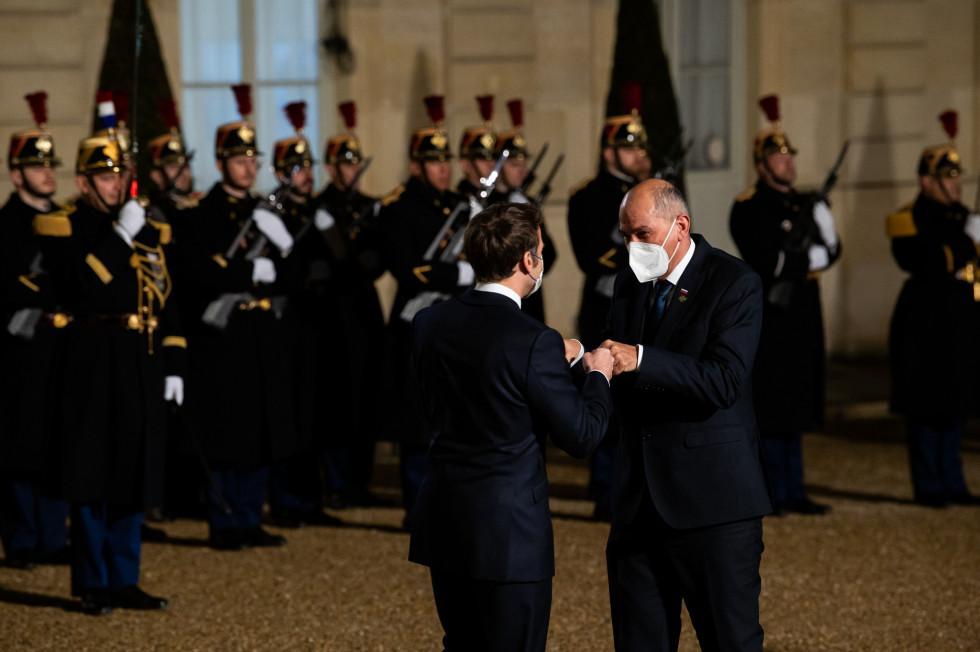Prime Minister Janez Janša discusses the situation in the Sahel at a working dinner in Paris
- Former Prime Minister Janez Janša (2020 - 2022)

Prime Minister Janez Janša at a working dinner in Paris | Author Kabinet predsednika vlade
France and other EU member states are carrying out peace operations in several countries in the Sahel region, namely Mali, Mauritania, Niger, Burkina Faso and Chad. The European Union is committed to the security and development of the Sahel through an integrated approach focused on political and diplomatic dialogue, as well as on development and humanitarian aid.
At dinner, heads of state and government from Africa and the EU were joined by European Council President Charles Michel, High Representative of the Union for Foreign Affairs and Security Policy Josep Borrell and a representative of the UN General Assembly.
After the working dinner, Prime Minister Janša said that security in sub-Saharan Africa, i.e. the Sahel, is of strategic importance for the EU and therefore for Slovenia. "We are talking about 100 million people who are exposed to terrorist attacks and destabilisation and dangers that are the result of constant military coups, coups d'état and an unconsolidated democratic regime. This is why a military presence, that is a strong presence of the EU, including Slovenia, is in our national interest," the Prime Minister stressed.
He also said that it was much better for the EU to make an effort to stabilise the situation rather than face a migrant wave of 10 million people and the suffering the people are subjected to there. "In spite of the will of those who actually hold power in these countries, however, some missions cannot succeed and, in fact, a reorganisation is being or will be carried out," the Prime Minister said. He concluded that it was still too early to talk about this, but that this certainly did not constitute "a strategic withdrawal from the region, but rather an adaptation to the circumstances that have arisen since the military coup in Mali".

